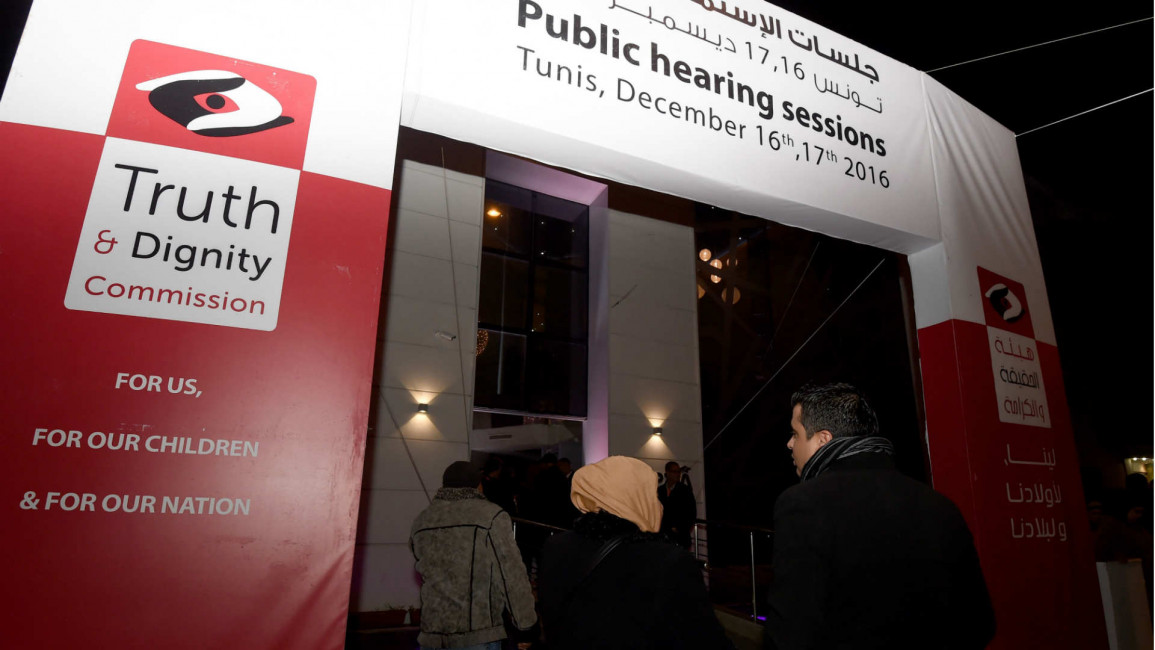It has a mandate to investigate human rights violations between 1957, when Habib Bourguiba became president, and the date of its creation, with the aim of holding perpetrators to account and rehabilitating their victims.
Tuesday's first court case concerned the forced disappearance of Kamel Matmati, a member of the Islamist movement Ennahda, who was arrested in October 1991 during Ben Ali's rule, and tortured to death.
The case is being tried in the southern coastal town of Gabes, where Matmati was taken, and was packed with family members and activists calling for justice.
"We want those who killed him, tortured him, to be tried" and convicted, Matmati's widow Latifa told AFP.
"We have spent terrible years. The hardest of all is" that his body has not been returned to the family, she said.
The next round of hearings is scheduled for 10 July. On trial are Ben Ali, who lives in exile in Saudi Arabia, his interior minister Abdallah Kallel and 12 other former oficials.
All are being tried in absentia. The court has promised to ensure they are summoned, but has not specified whether arrest warrants or extradition requests are issued.
They face charges of voluntary homicide, torture and forced disappearance.
Since the IVD began work, it has received more than 62,000 allegations of human rights violations, including rape, murder and torture.
The commission has interviewed close to 50,000 people and referred at least 32 cases of "serious violations" of human rights to Tunisian courts.
Human Rights Watch said Tuesday's trial could be a turning point for Tunisia's judicial system and to consolidate democracy in the birthplace of the Arab uprisings.
"If the judiciary, one of the pillars of the past dictatorship, can deliver accountability fairly for such iconic cases, it will be such a huge step forward for consolidating democracy in Tunisia and a landmark for the entire region," said Amna Guellali, HRW's Tunisia director.
Agencies contributed to this report.
Follow us on Twitter: @The_NewArab



